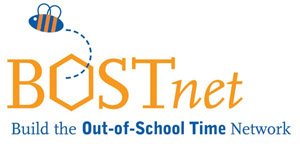In the fall of 2008, BOSTnet and the Trefler Foundation convened two focus groups comprised of established and emerging leaders of youth-serving organizations. These groups were brought together to reflect upon the opportunities and barriers to developing as effective leaders in the field. There was a general consensus that the field needs better, community-focused systems to build effective leaders and organizational managers. There was also consensus that many leaders already exist in communities but there are few opportunities for these leaders impact broader policy debates.
When asked to imagine what a leadership development system might look like, most focus group participants keyed in on three core strategies:
1. Youth Development Leader Training: Focus group participants were clear that there should be more opportunities to engage in formal training that builds organizational management skills. While there are many skill-building opportunities for nonprofit managers, participants were clear that cost and relevance to the OST sector is critical. Funders need to think strategically about how to leverage the many opportunities that exist for leadership development and make them both accessible and relevant for the field. There are also opportunities for private and public stakeholders, including agencies under Massachusetts’ Education Secretariat, Executive Office of Labor and Workforce Development, and Department of Higher Education to expand current credential opportunities, such as the School Age Youth Development Credential (SAYD) run by Achieve Boston and the Professional Youth Worker Credential offered by Commonwealth Corporation’s Pathways to Success by Twenty-One (P-21) initiative. A parallel certificate in organizational management and leadership would lead toward tangible goals, such as college credit or a recognized director’s credential.
2. Formal mentor systems: Various leadership development programs, such as Boston University’s Institute for Nonprofit Management and Leadership link emerging leaders with more seasoned leaders from other organizations. The value of mentors cannot be overstated. In fact, most respondents to our leadership survey as well as participants in our focus groups noted the importance of mentors to their professional development. The collaborative nature of the field may lend itself to more formal systems of community-based mentors.
3. Informal peer-to-peer networking/learning communities: Learning from peers is often cited as the most influential input in an individual’s development as a professional. As a field, youth development excels at networking and connecting. There is value in creating informal opportunities for leaders of youth serving organizations to connect, discuss issues and problem solve in a collaborative, community-based way. For nearly 14 years BOSTnet has run monthly Directors’ Roundtables to provide a forum for networking and shared learning. These types of networks are becoming increasingly prevalent nationwide.
Leaders of youth serving organizations are asked to be many things—youth development experts, educators, relationship specialists, behaviorists, staff trainers, family engagement coordinators, youth outcome evaluators, fundraisers, and board managers. The growing professionalism of the field over the past decade has pushed these tasks to ever-higher levels of skill requirements without increases in compensation to support and develop staff effectively. To be truly transformative, OST leaders will need to move beyond running organizations and providing services to engage policymakers and funders in creating new roles. These roles may include developing the voice of the field to help shape the broader public dialogue around education, youth development and achievement; or aligning community-based assets, including schools, OST programs and health services to better address the needs of the “whole child.” This is critical in the current climate of education reform with so many choices being presented to communities—Expanded Learning Time, Pilot schools, community schools, Charter schools, service learning, etc.
It seems likely that the role of OST as a partner in education and youth development will continue to expand in the coming years, putting greater demands on programs, and program leaders, to provide high-quality learning and enrichment opportunities. How we address these challenges will have a long-term impact on the field, as well as on the children, youth and families we work with everyday.
Gov. Patrick Establishes Six Readiness Centers
16 years ago

No comments:
Post a Comment